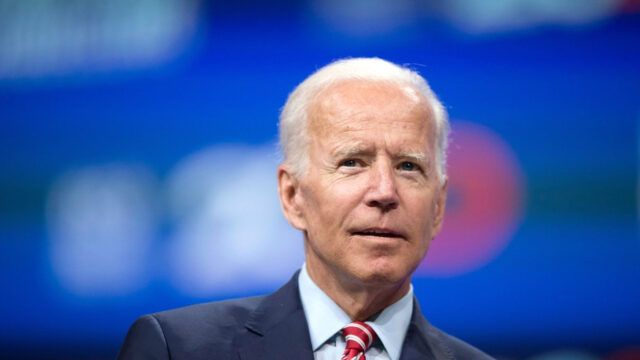As US President Joe Biden took charge, there were speculations made all over the world to predict his policies towards different regions. South Asia stands amongst the important zones due to its politically volatile nature as well as its capacity of exporting goods as well as services. The Trump administration followed policy that had focused objectives for South Asia and his intentions of his “America First” approach continued to figure in all the policies. The new administration has shown continuity in some and de-linkage from other decisions of the former one. This article looks at the expected policies planned for South Asia and how that would map out in future.
Trump’s South Asian policy and the politics in the region
American President Trump had a streamlined policy towards South Asia which intended to achieve stability in Afghanistan, rectifying Pakistan’s policy towards terrorism, and encouraged India to intervene in the policy to be taken for Afghanistan. This was in contrast to the policies followed earlier. C Rajamohan described Trump’s South Asian policy as being different from the one that put India and Pakistan in “separate boxes” in addition to differentiating between the two in case of status and responsibility. According to Rajamohan, President Trump’s approach hinted confidence in the Indian capability for strategic burden sharing. In fact, a few days before the end of Trump’s tenure a set of declassified documents revealed the American intentions to utilise India as a counterbalance against China and to maintain a liberal world order.
Now with the Biden administration in power in the US, there are various factors that need a close watch. US President Biden was sworn in on 20th January 2021. The scenario in the South Asian continent is full of complexities. India and China are in the post conflict phase due to their cross border skirmish almost 9 months ago; and started their “phased, coordinated and verifiable” pull back recently in the second week of February. India and Pakistan continue to share a love-hate relationship that has been consistent more than 70 years. Myanmar had a political upheaval when the army orchestrated a coup and detained the major political leaders. Sri Lanka has been the point of discussion after its evident change in loyalties when it pulled out of the East Container Terminal deal with India and Japan and went ahead with the Chinese energy project. US Secretary of State Mike Pompeo had described China as a predator in a joint press conference with his Sri Lankan counterpart Dinesh Gunawardena. Afghanistan continues to remain the challenge unwilling to be tamed in any manner. The role of Bangladesh is relevant for the tussle between US and China in the economic realm.
It is apparent that South Asia is an important region to US for three major reasons – potential for market and labour, political volatility and proximity to China. In the initial phase, the Biden administration has followed a firm but balanced approach to the countries by keeping its faith in democracy and intolerance towards terrorism clear.
Biden’s balanced approach
In a display of the approach that the new American administration was following, Emily Horne the White House spokesperson acknowledged the US concerns with respect to the Chinese efforts to intimidate its neighbours. In a telephonic conversation, Prime Minister Modi and President Biden discussed shared priorities to further peace and security in the Indo-Pacific area. Even during his campaign, President Biden had spoken of creating opportunities to ease work and living conditions for Indians by loosening the rules for visa and other such documentations. US and India share a mutual interest which is curtailing the Chinese growth in South Asia.
The relevance of Pakistan was emphasised in a statement by US Defense Chief Gen Lloyd Austin when he described the former as an “essential partner” in furthering the peace process with Afghanistan. He also spoke of the prospective military partnerships with the military leaders in Pakistan through the use of International military education and training funds. He highlighted the need to work towards elimination of terrorist groups and activities in Pakistan by the country itself.
As a reaction to the coup in Myanmar, President Biden condemned the action and ordered sanctions against the military generals in the country and restricted their access to the government funds of value USD 1 billion held in the US. He said that stricter actions will be taken like freezing of bank assets and imposition of trade sanctions too. He urged the Burmese military to release the detained political leaders and respect the spirit of democracy.
Policy in a crux
In the recent developments, there are some inferences that sum up the American policy towards South Asia. One, the US realises the value of the sub-continent more due to the Chinese operations to further its spheres of influence. Second, it seems likely that Biden might adopt a much more transparent but intolerant policy with respect to the terrorist activities. Third, the difference in Biden’s policy is the due credit that both India and Pakistan have received according to their stature in the international community. While Pakistan has been promised cooperation, India has been welcomed to join in a shared dream of security.
US President Biden has taken charge at a time when the world is struggling with a pandemic, facing basic domestic challenges like poverty, hunger as well as fighting political upheaval battles. This is worse in South Asia due to the huge populations, illiteracy and poverty. In addition to that, the constant rise of China is a threat. In order to find partnerships in the region and regain its world leader tag, US must take cautious steps.
Biden’s administration has responded swiftly to all developments that are against the principle or democracy or encourage violent reactions. The American dream is the spread of liberal democracy and Biden’s current statements and actions with respect to South Asia validate the same.









